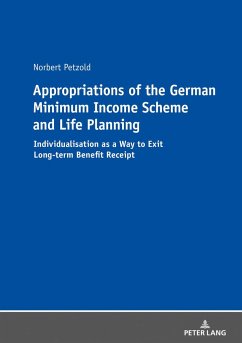Against the background of a high incidence of long-term benefit receipt and an increasing focus of interventions on the individual beneficiary, this study shows how individualised policies within the German minimum income scheme serve long-term beneficiaries as a way out of benefit receipt. By applying a qualitative research design, the link between individual appropriations of policies and individual life planning is reconstructed in the form of an empirically grounded typology. The analysis shows that individualised policies are ridden with prerequisites. Beneficiaries, that are not able to expertly appropriate them and to plan in the long-term, face unintended consequences like a limitation of life planning, a separation from the scheme or an establishment within entitlement.








